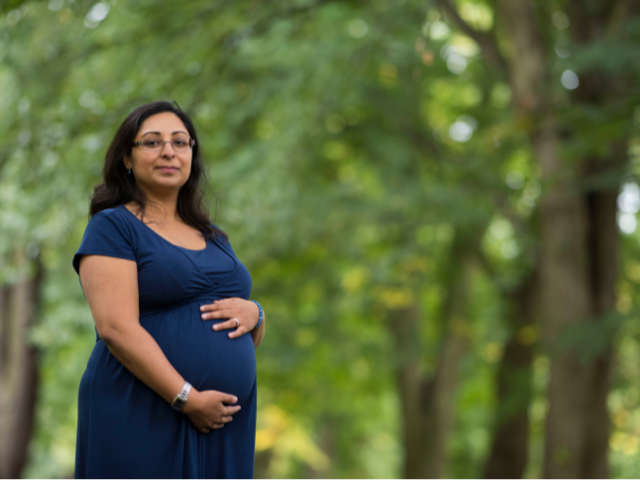
Welsh researchers lead UK arm of global trial for treatment of rare genetic condition in the womb
19 February
Cardiff and Vale University Health Board is the sole site in the UK for an international clinical trial that could improve treatment options for patients affected by a rare and life-threatening genetic condition.
The Study for Pregnant Women Expecting an Ectodermal Dysplasia Affected Boy (Edelife) trial is being carried out at the Children and Young Adults Research Unit at the University Hospital of Wales, which is supported by Health and Care Research Wales.
The trial focuses on investigating new treatment options for X-Linked Hypohidrotic Ectodermal Dysplasia (XLHED), a rare genetic condition. Affected babies are treated in the womb and if successful, it could lead to better treatment options in the future.
XLHED causes symptoms such as missing or abnormal teeth, sparse or thin hair and a lack of sweat glands, which increases the risk of overheating and life-threatening complications. It is caused by an alteration in the X chromosome and, while both men and women can pass XLHED to their children, the condition principally affects boys. There are no curative treatments for XLHED.
Coordinated by Bethan Phillips, a research nurse at the Children and Young Adults’ Research Unit, the study brings together a multidisciplinary team of specialists from fetal medicine, genetics, paediatrics and midwifery.
There are 10 centres across Europe and the US taking part and Cardiff and Vale University Health Board is the sole site in the UK, reflecting Wales’ ambition to become a world leader in genomics.
One of the participants in Cardiff, a 32-year-old mum, explained how she grew up with two brothers who both had the condition, suffering severe asthma, limited physical activity and difficulty eating due to missing teeth and salivary glands.
However, her decision to participate wasn’t just about giving her son a chance to live without limitations — it was about creating a future where children with XLHED can thrive.
She said: “When you can’t sweat, your body can’t regulate heat properly which means you only have 10 minutes of exercise before you have to stop. That’s not the life I wanted for him, I want him to have equal opportunities and not be limited.
“Research is so important because it can change lives, sometimes in ways we can’t even imagine. This trial is a step forward not just for my family, but for everyone who faces this condition.
“Being part of something bigger than yourself is one of the best feelings. If my son can help in any way, that’s great. I’m not just having a baby for myself, I’m having a baby for everyone.”
Professor Angus Clarke, Clinical Geneticist and Principal Investigator for the trial in Cardiff, added: “XLHED is rare, it’s estimated to affect perhaps three in every 100,000 newborns. It restricts physical activity and, especially for young children, it can be life-threatening. The lack of glands producing sweat and mucus is the primary cause of mortality in young children who are affected, and the lack of sweat has a huge impact on daily life. Learning more about potential treatments that could improve the quality of life for patients is exciting.”